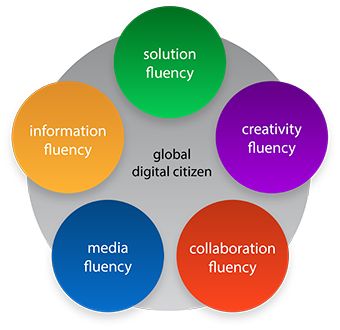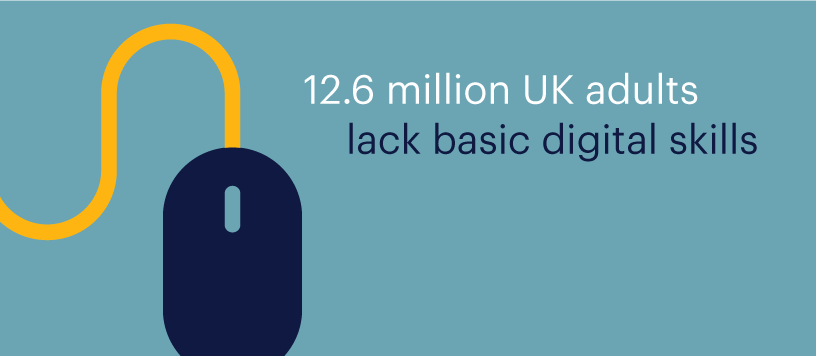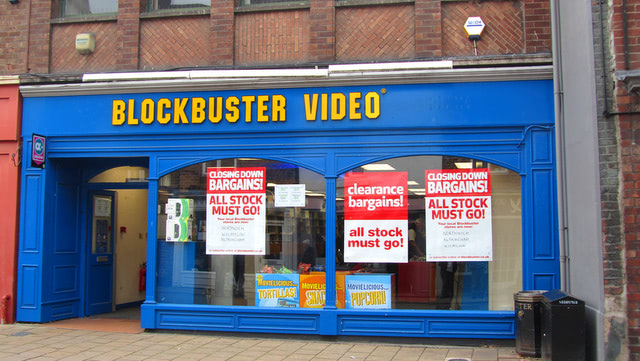Fax machines, floppy discs and paper. The #FutureofWork and adult skills isn’t what it used to be.
For a list of all the ways that technology has failed to improve the quality of life, please press three. So said author Alice Kahn.
Whilst technology can often polarise opinion there is little doubt that in both our professional and personal lives it’s everywhere.
We are living and working in the digital age, often referred to as the fourth industrial revolution and it has profound implications for the skills needed by adults to thrive in the digitally connected workplace.
The Tech Nation 2017 report has revealed that over 1.5 million people are already working in the digital sectors with a combined turnover in excess of £170 billion and twice the growth rate of non-digitally enabled businesses.
Globally the digital economy is already estimated to be worth over three trillion dollars, and this has happened in just the last twenty years.
Adults in the workplace will clearly need a minimum of basic entry level digital skills to avoid digital exclusion whilst benefiting from the spectacular global opportunities provided by ever greater digital connectivity.
For our world of part-time adult education no matter what the specific subject being studied, it is my contention that basic digital skills are now essential to the delivery of destination driven relevant provision.
Digital skills are now as critical as numeracy and literacy. Without them, digital exclusion will continue to present a major national challenge in regard to social mobility and lost productivity, and in turn that will impact on economic growth and prosperity.

Most adults already in the workplace grew up in a pre-digital age. If you can remember fax machines and floppy discs, just mention them to a screenager and watch your dignity ebb away in double time.
As a parent of two I know the fastest way to hold a family meeting is simply to unplug the wifi and watch them come running.
Access to, and the ability to make use of, digital connectivity is now an essential utility in everyday life. Those without basic digital skills will find life a lot harder, and more isolating, than those with them.
The late Douglas Adams once said that anything invented after you’re 35 is against the natural order of things. For the world of adult skills this presents a problem.
The scale of this problem has been widely recognised not least by the UK House of Commons Science and Technology Committee whose second report on digital skills published in June 2016 stated ‘The evidence is clear that the UK faces a digital skills crisis’. Crikey. Sounds bad but turning to the words of Douglas once again, ‘Don’t panic’.
The challenge is big, with over 12 million adults lacking basic digital skills at an estimated productivity cost of £63 billion according to the Science and Technology Committee, but it’s a challenge that can be met. Indeed for the future economic prosperity of the UK as well as addressing critical social mobility challenges, it must be.
My contention is that Colleges are uniquely placed to address this need through remodelled destination-driven part-time adult education provision providing basic digital literacy capability aligned to the global digital economy, delivered locally in accessible friendly and supportive spaces.

The scale of the challenge.
The Science and Technology Committee points out that broadly 90% of all jobs now require digital skills in one way or another, and that 72% of employers indicated they would be unwilling to interview candidates lacking in basic IT skills.
For adults wishing to change career to one with higher earnings potential or looking to secure a new post having been made redundant a baseline level of digital skills is now a prerequisite.
Knowing how to use the internet wisely along with tools such as social media are now essential in daily life, and employers will always value those who can use these tools to promote their business to support growth over those who can’t.
Old dogs and new tricks.
I once worked with someone who used to print all of their emails, and whilst this might seem ridiculous it’s a reminder that old habits die hard. In the digital age many adults already in the workplace will need to develop new habits specifically in the adoption of emerging digital skills.

With over 1.4 million adults trained each year by Further Education Colleges, representing 31% of all students in UK Colleges, they are a major asset for the UK to meet the adult digital skills challenge.
According to the AoC (Association of Colleges) the average College also works with over 600 businesses, multiply that across some 280 Colleges and the potential reach and impact is unrivalled in terms of national infrastructure.
Colleges could act as a national network of adult digital skills hubs and with a large part of the infrastructure already in place to be shovel ready, providing basic digital capability to the millions of adults at risk of digital exclusion is a challenge that can be met with the right support.
Digibility
An ability to apply digital skills in everyday life has far reaching consequences well beyond the prerequisite skills for a particular job. When adults in the workplace lack digital ability the impact is felt in families, communities, political engagement, public services, and personal finance.
Getting the best deal for most household bills now requires the ability to use the internet wisely, as does finding the best career opportunities. Employers will expect to utilise these same skills.

An awareness of the power of social media along with online etiquette are now essential for business. Tweet others the way you wish to be tweeted, as American journalist Germany Kent once remarked. All of these skills form part of essential digital capability skills that Colleges can provide to the communities they serve, transforming life chances in the process. When that happens, everyone gains.
World of mouth
Businesses need adults who understand how to use digital channels to target new markets and engage with new people to support their ambitions, transforming their businesses in the process. This means using digital tools like social media wisely. Digital means growth.
British-American journalist Heather Brooke once commented that it used to cost money to distribute information but in the digital age it now costs money not to. Business needs a digitally enabled workforce. Analogue business plans don’t work in the digital age. Just ask Blockbuster.

The current policy landscape surrounding adult digital skills lacks strategic direction. Redirecting what remains of the Adult Education Budget in Colleges to meet this agenda will fall well short of national priorities.
Equally market forces in the commercial sectors will not meet the challenge either. Many of the adults requiring basic and higher level digital skills are already running businesses or at decision making level in them, yet the problem remains.
However, the £63 billion productivity prize is within reach. If a £2 billion investment yielded a £61 billion return, most investors would sign up.
A modest investment in the existing national network of UK Colleges strategically targeted specifically at adult digital skills would potentially yield a spectacular return.
Existing analysis of the returns generated from Colleges in the UK by the AoC using UK Government data already shows that College students aged 19+ generate an additional £70 billion for the economy over their lifetimes.
Investing a few billion into adult digital skills directly managed by Colleges would add to this further, and if the Governments own projections are correct the return would be tens of billions for the UK economy aside from wider social mobility benefits.
American computer scientist Alan Kay once said that technology is anything that wasn’t around when you were born, and when I was born there wasn’t much of it around unless you count a Commodore 64 or BBC Micro now probably languishing in a museum somewhere.
It occurred to my daughter recently that I was born in a pre-digital era ‘before the internet’, something she described as ‘impossible’ asking me ‘how did I do anything?’.
At first her dramatic description amused me but later that same day I had a problem with my internet and found out I needed the customer services number, off the internet, so perhaps she had a point.
Whilst coding and wider digital skills are starting to embed into schools, for most adults already in the workplace, especially those who may be more than half-way through their career, digital skills aren’t native and will need to be learned.
The next stop is digital

Whilst Universities are the place to be for advanced higher level computer science skills in areas such as cybersecurity, blockchain and networking, it is Colleges that are uniquely placed to deliver an entry level introduction to the digital world for millions of adults needing to retrain and upskill.
The good news is that Colleges have always been deeply connected and rooted in their local communities and have much of the existing infrastructure to deliver on this agenda.
A modest investment in adult skills training via a dedicated adult digital funding stream in Colleges would transform life chances, support social mobility and increase the economic prospects of millions of adults already in the workplace.
For the more than twelve million adults in the UK lacking basic digital skills, a local College can be the vehicle to a new destination, and the next stop is digital.
by Jamie Smith, Executive Director, South Staffordshire College, Co-Founder Statistics24.com











Responses